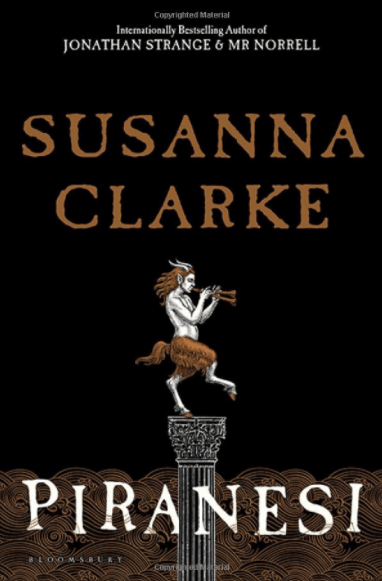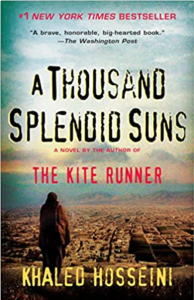Lots of variety here!
Here’s what we’re reading:
Our current read-aloud book for the little kids (ages 6 and 10) is Howl’s Moving Castle by Diana Wynne Jones.

I haven’t ever seen the movie, but have heard that the movie and book are both good, but quite different. I’m enjoying the book a lot. It’s weird and entertaining, and reads aloud very well. It’s easy to get the tone of voice right in dialogue without having to read ahead, and there is plenty of variety in the sentence structure, which I always appreciate when reading aloud. It gives some clues to the characters’ interior lives, without overexplaining; and the storytelling is so deft, it helps you accept some really outlandish situations without blinking. My only quibble is that the chapters are different lengths, which can be frustrating when we only have a certain amount of time allotted to read.
Also reading Christopher West’s Theology of the Body for Beginners to the middle kids (ages 12, 14, 16, and 17).

I wouldn’t say they’re enjoying it, exactly, but I chose it so at least we would have some kind of common vocabulary, and then if they want to disagree with me (or if I want to disagree with West, which I’m not ruling out), at least we could have somewhere to start. I don’t know. The world has gotten very strange very quickly and I have no idea what to do about it. I know there are issues with Christopher West, but it’s pretty solid so far, and the kids have moved from snarky to reluctantly interested. I just don’t want them to grow up thinking that the Church’s main teaching is “Adam and Eve, sex bad, be careful, marriage, the end.”
This is what we are doing, by the way, rather than the parish whole-family religious education program. (We also send them to Dead Theologian’s Society, but we’ve been skipping because it includes a meal, and it omicron time.) Between covid and who knows what else, our parish stopped doing individual religious education classes and started this thing where I guess the whole family goes in together, and then you have to go home and teach your own kids anyway? Which sounds like the worst of both worlds. So we’re just doing this, and also:
Damien is reading St. Patrick’s Summer by Marigold Hunt to the younger kids (Benny did her first confession, first communion, and confirmation last year, but Corrie hasn’t done any of that yet).

I read this to the older kids when they were younger and remember liking it a lot — it’s a catechism told through a story, where a couple of 20th century kids meet St. Patrick and some other spiritual figures — but Damien says the content is good, but he’s finding the style hard to read. I think we were homeschooling when we read it, and probably just had a wider tolerance for weird books. Anyway, I recommend it for people who are looking for a solid catechism but maybe don’t want to go the Baltimore Catechism route for whatever reason. It has really good stuff about doctrine, like the trinity, etc., that many adults probably missed learning. I remember it as being fairly winsome in tone, definitely not preachy, but surprisingly natural in the way it conveyed doctrine through dialogue.
On my own, I’m reading Piranesi by Susanna Clark, which I got for Christmas, and I’m enjoying immensely.

It’s wonderful to read a book that’s been written so deliberately. I’m constantly astonished at how carelessly so many popular books are written. Like, the story is interesting and the characters are fine, but the author doesn’t seem to have gone to any trouble over the writing itself? Even though they are an author?? I don’t think we should put up with this.
Anyway, Piranesi is wonderfully engaging and fascinating and I have no idea whatsoever what is going to happen, and I can’t wait to find out.
Also reading Midnight Is a Place by Joan Aiken.

Joan Aiken is always worth reading. Never writes down to kids, but knows what kinds of things are important to kids. This is not actually one of my favorites — there are too many characters, and I’m finding the action a tiny bit confusing — but it’s got lots of adventure, appealing characters, pathos, comedy, an excellent sense of place, and a bit of social conscience, all of which are Aiken trademarks.
This one is about a young lonely teenage boy growing up lonely in a decrepit mansion as the ward of a titan of industry. He longs for a friend and is dismayed to find himself instead put in charge of a little French girl. The two of them get swept up in an intrigue in the streets of the Industrial Revolution slums of the hellish city of Blastburn. The book includes a lot of peril and the death of children, so may not be appropriate for sensitive young readers.
Lately we’ve been watching:
The Book of Boba Fett on Disney+
I’ve been hearing a lot of belly-aching about this show, and the arguments against never strike me as critiques of the actual work, but more that the show didn’t fulfill the particular desires that happened to reside in that particular viewer’s psyche. It’s possible I just have the right combination of fondness for Star Wars and ignorance of the lore minutiae, but I’m finding it to be the most entertaining thing I’ve watched in ages. I do think it stands up on its own as a cinematic spectacle and on its own narrative integrity. It’s not groundbreaking, and it’s not supposed to be. It’s well-known that the original Star Wars trilogy was a space western. The Mandalorian and now Boba Fett really bring that out of the realm of suggestion and right up to the surface. It may as well be a John Ford movie, just transplanted. I just about lost my mind when the train showed up in episode 2. So beautifully shot, and thrilling! People said it was boring, and I just don’t understand what they were watching. It’s exciting! It’s beautiful! It has monsters! And trains! And a good-bad man that you come to understand more and more as the show goes on. I’ll watch that story again, why not. It doesn’t hurt that my kids keep shrieking with joy as little obscure references and inside jokes keep turning up (and going over my head).
One essay complained about the exploitation of the story of the Tusken Raiders. It said that, while previous Star Wars movies were clearly written by the victors, portraying the tribe as witless savages, Boba Fett gives them the space to be revealed as a true culture with a backstory and a grievance which explains why they’re so aggressive — but then it obliterates them offscreen once they perform the service of giving Boba Fett some character development. And that’s true! But I’m not sure why it’s a problem! This is the kind of thing that happens all the time in a John Ford western, and I think people just need to watch more of them. Start with The Searchers and relax your ass.
We’re also watching I, Claudius again. The 1976 BBC series based on the historical novels by Robert Graves.
I did read the book a long time ago, but I really don’t remember it, so I can’t say how faithful the series is, but it has won numerous awards. It’s rather dated and very British in some ways, but once you get going, it’s gripping. I mean how could it not be! It’s told from the point of view of the emperor Claudius at the end of his life, putting together his autobiography and his horrible family history. Lots of poisoning, orgies, and intrigue, betrayal, heartbreak, oracles, and people deciding just how many compromises they can stand to make. I’m not great at following all the ins and outs of the politics, but it doesn’t really matter. You just have to understand which people will do anything for power, and see everyone else eventually get squished. Lots of great acting, spectacular costumes, so sad and funny and terrifying. (Tony Soprano’s mother Livia is clearly a nod to the uber-ambitious wife of emperor Augustus.) I recall it has some very grim and gory stuff further on with Caligula, so viewer beware.
We’re watching this series on disc, but you can stream it in a few places (nowhere free currently, unfortunately).
And, for something totally different, we’re watching The Great British Baking Show, season 9, on Netflix.
We’re only about three or four episodes in, so please don’t tell me who wins! We finished up the previous season, and it was just delightful. Stressful! Always surprisingly stressful. But overall a lovely show, structured very differently from any American reality show.
It starts out with 12 amateur (but extremely good) bakers who have to produce a series of pastries and other baked goods. Sometimes they have a chance to practice and develop their recipe ahead of time; sometimes the assignment is a complete surprise, they’ve never heard of it, and the recipes are vague and unhelpful. Sometimes they have to make a dozen, identical pieces of some relatively simple sweet; sometimes they’re expected to produce outlandish, elaborate edible projects like chandeliers or childhood toys that you can really play with. One baker is eliminated each week, so you really get to know them over the course of the show, and they each bring in their own traditions, ethnic backgrounds, aesthetic preferences, and neurosis. They do a great job of choosing a variety of contestants with different strengths and weaknesses and different kinds of appeal. They encourage and sometimes even help each other, and although the judges are sometimes stern and the pressure is intense, this isn’t a cruel show. We save it for Sundays, because it’s so pleasant and I don’t want to wear it out.
They include short bits where the judges horse around with each other and do stupid little gimmicky jokes, and these are lame, but not too intrusive, and they focus mainly on the bakers and the baking. It’s all done outdoors under a giant tent, and the setting is breathtakingly lovely. (And yes, one of the hosts is the guy who plays Richmond on The IT Crowd.)
Listening to:
I’m not listening to anything! I have nothing. I’m listening to the dog making glorping noises with his stupid loose face and I’m going to lose my mind. What are you listening to?






































